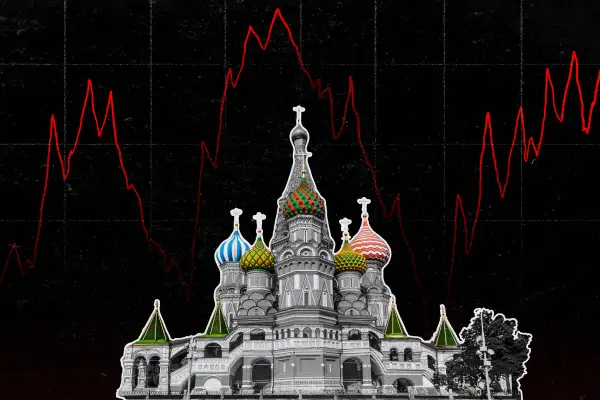Do You Own Russian Stocks Without Knowing It?
Money is not a client of any investment adviser featured on this page. The information provided on this page is for educational purposes only and is not intended as investment advice. Money does not offer advisory services.

The war in Ukraine continues to escalate, despite sanctions against Russia and denouncements from around the world. If you're anxious about whether you hold Russian investments in your portfolio, you're probably not alone.
The stock market has experienced a ton of volatility as investors wrestle with what the geopolitical conflict means for the price of oil, the supply chain, inflation and more. Russian stocks have been hit particularly hard: The Russia-focused exchange-traded funds (ETFs) VanEck Russia ETF and iShares MSCI Russia ETF both plunged this week and are down around 70% for the year.
Meanwhile, Russia is being condemned for human rights abuses, including by U.S. Secretary of State Antony Blinken and organizations like Amnesty International. So market performance aside, as businesses and consumers boycott Russian products, you may want to do the same with your investments.
The Nasdaq and New York Stock Exchange both temporarily stopped trading in Russia-based companies earlier this week, and index provider MSCI signaled that it could cut Russian stocks and bonds from its indexes, Reuters reported. These actions came over concerns about how sanctions were destroying the liquidity of the Russian market.
But should you be worried about your exposure to Russian stocks and bonds? Probably not.
Most investors with a diversified portfolio of funds are going to have very little exposure to Russian securities — probably under 1%, says Karin Anderson, director of fixed-income manager research at Morningstar.
Here's what you need to know.
Russian investments in retirement funds
If you invest some of your pay in a 401(k) or other retirement account provided by your employer, you likely don't have a lot of options when it comes to your choice of investments.
But you also probably don't have to worry too much about Russian investments in those retirement funds. Russian stocks make up just 0.4% of target-date funds on average, according to Morningstar data. Russian bonds make up less than 0.1% of these funds.
Target-date funds from Fidelity and Vanguard, two of the largest providers of retirement accounts, have an average Russian stock exposure of 0.62% and 0.22%, respectively, Morningstar found. The exposure to Russian bonds is less than 0.1% for both.
Russian investments in emerging market funds
Where you will see more exposure to Russian assets is in funds dedicated to the natural resources and energy sectors, or to emerging markets. (Emerging market funds are mutual funds and ETFs that invest in assets from developing economies like India, China and Russia.)
But the average exposure to Russia in these funds was relatively low even before Russia invaded Ukraine — around 1% for the sector funds and less than 5% for emerging markets funds, Benjamin Slupecki of Morningstar wrote in a market update Monday. Some emerging market funds with a larger exposure to Russian assets are also reducing that exposure. GQG Partners Emerging Markets Equity fund's stake, for example, had been about 16% of assets in December 2021, but last week the firm said it had reduced that to about 3.7% of assets, Morningstar reported. GQG Partners did not immediately respond to Money's request for comment, but the firm's chief investment officer told investors during a conference call last week that he cut back the fund's exposure to companies that he thinks could feel the most impact from sanctions, Morningstar reported.
Plus, for most investors, allocations to emerging market funds are usually satellite holdings, meaning they're not a part of an investor's core holdings, Anderson says.
"When you kind of boil that down to your overall assets, that's going to be a small piece," she adds.
What you should do
If you're still worried about the presence of Russian assets in funds — for performance or humanitarian reasons, or both — you can see which stocks and bonds a fund holds via the fund provider's website or Morningstar's analysis of the fund. And remember, Russian exposure could be reduced even more as managers revisit holdings, and MSCI considers cutting the country's assets from indexes.
Overall, if you have a well-diversified portfolio, you likely have minimal exposure to Russian assets.
"We encourage people to keep in mind this is a really small piece of the entire portfolio and not lose sight of the long-term goals for how they've set up their funds," Anderson says.
Market volatility can be scary, but experts say that investors should stick to their long-term plans and not try to time the market, which can often result in missing an upswing altogether.
What's more, volatility can be a good opportunity to review your investment portfolio and ensure that it's still in line with your risk tolerance. If you're losing sleep over price swings, double-check that your portfolio is well diversified so that when one part of your portfolio takes a dip, another stays steady.
More from Money:
The Russia-Ukraine Conflict Is Rattling the Stock Market. Here's What Investors Should Do Now
